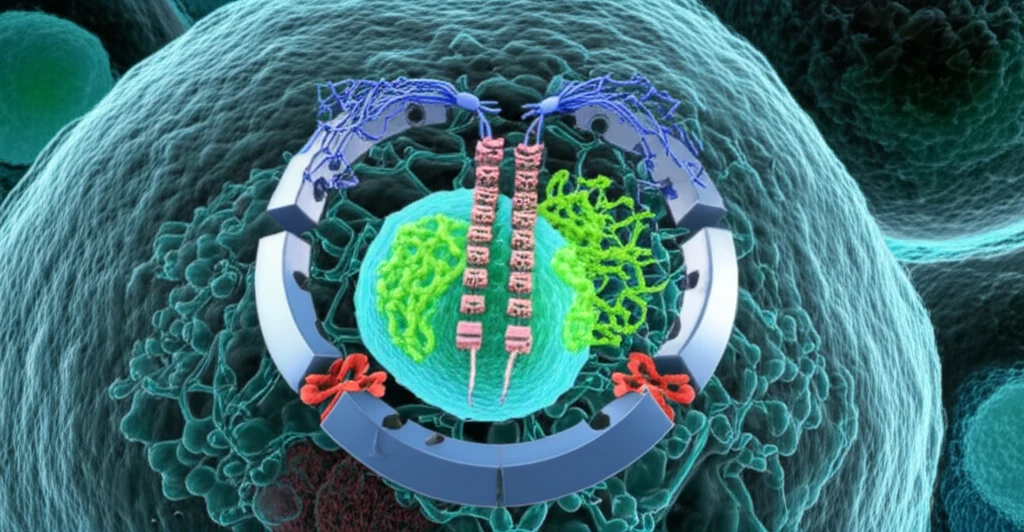
Unlocking the Secrets of Cell Division: How a Molecular Complex Keeps Our Cells in Check
"New research sheds light on the intricate mechanisms that ensure our cells divide correctly, preventing genetic errors."
Imagine a bustling city where every building must be constructed with absolute precision. In our bodies, cells are the 'buildings,' and cell division is the construction process. This process, known as mitosis, is critical for growth, repair, and reproduction. But what happens if a mistake occurs during this 'construction' phase? Errors can lead to serious problems, including diseases like cancer.
Recently, scientists have made significant strides in understanding how cells meticulously control this process. At the heart of this control is a molecular complex that ensures the accurate segregation of chromosomes – the structures that carry our genetic information. This research delves into the workings of this complex, highlighting its crucial role in maintaining cellular health.
This fascinating study, published in Current Biology, illuminates the importance of a molecular complex in ensuring the correct division of cells. We will explore how this complex functions, the consequences of its malfunction, and the potential implications for understanding and treating diseases associated with cell division errors.
The Key Players: The MCM Complex and ESCO2

Within our cells, a complex molecular machinery meticulously manages cell division. Two key players in this process are the MCM complex and a protein called ESCO2. The MCM complex acts as a guardian, safeguarding ESCO2, which is essential for ensuring the proper formation of sister chromatids – identical copies of chromosomes that must be separated accurately during division.
- The MCM complex interacts with ESCO2, protecting it during the S phase.
- ESCO2 helps ensure that copied chromosomes are properly aligned.
- Errors in this process can lead to chromosomal instability, a hallmark of cancer.
The Future of Cell Division Research
The study of cell division is ongoing, with each new discovery bringing us closer to a comprehensive understanding of the complex biological processes at play. The insights gained from this research are vital for understanding and potentially treating diseases where errors in cell division are implicated. By unraveling the intricate mechanisms that govern cell division, scientists are paving the way for breakthroughs in medicine and a deeper understanding of life itself.
